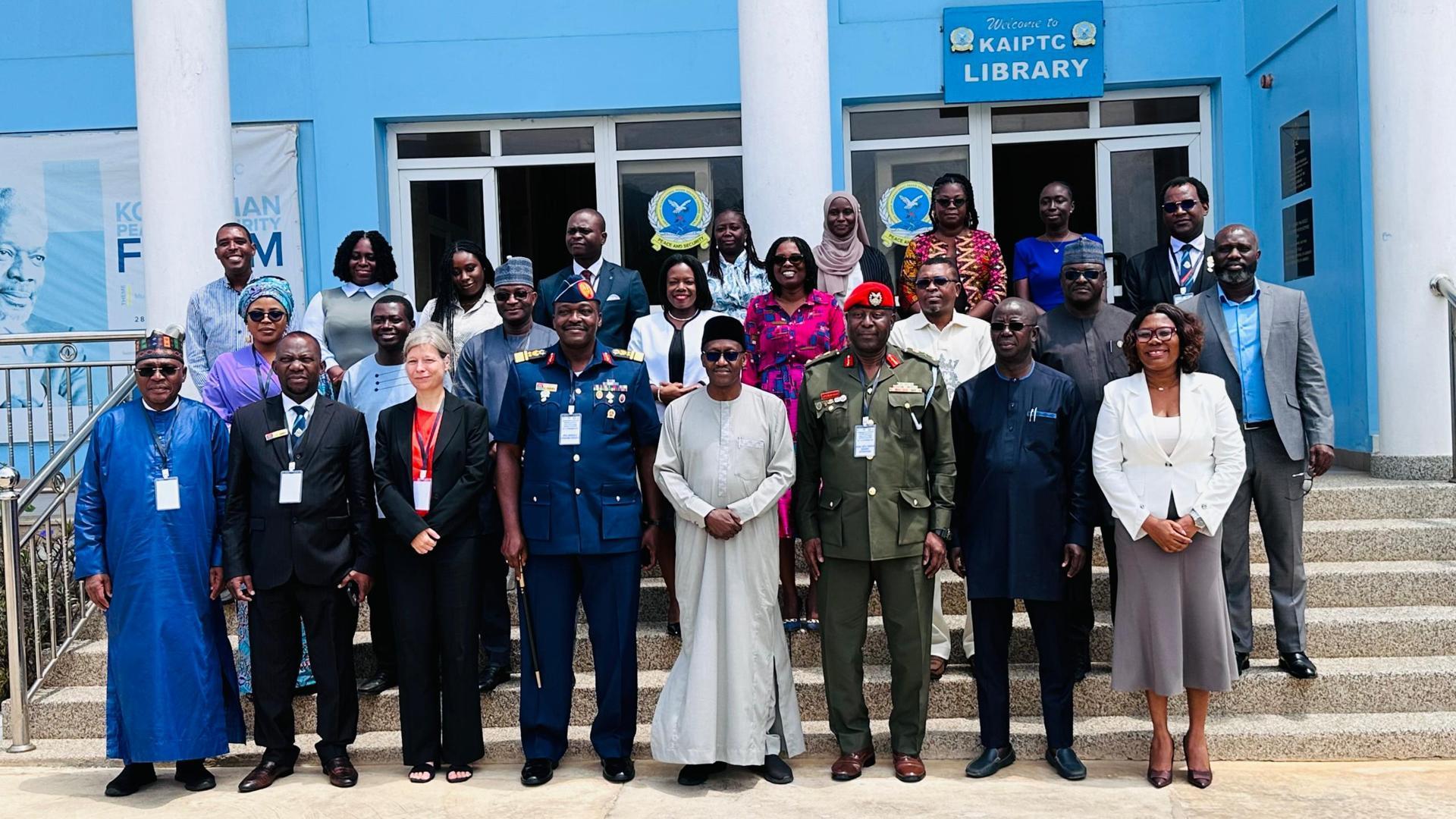Africa-Press – Ghana. The biennial meeting of Commandants of ECOWAS Training Centres of Excellence (TCEs) has ended at the Kofi Annan International Peacekeeping Training Centre (KAIPTC) in Accra, with participants renewing their commitment to deepen collaboration in addressing the region’s growing peace and security challenges.
The two-day meeting, which opened on Monday, brought together heads of ECOWAS-designated training institutions, policy leaders, and partners to review progress, assess operational gaps, and align training priorities with the evolving regional security landscape.
At the close of deliberations, participants, including the Commandants reviewed the implementation of past commitments, assessed the ECOWAS Peace, Security and Governance (EPSG) work programme for September 2025 to June 2026.
They discussed the review of the Memorandum of Understanding between ECOWAS and the Centres and mapped the role of the Centres in supporting the activation of the Standby Force.
The KAIPTC, one of three ECOWAS Training Centres of Excellence alongside Nigeria’s National Defence College and the École de Maintien de la Paix Alioune Blondin Beye in Mali, has over the years hosted high-level training, research, and policy dialogues to strengthen peace support operations on the continent.
The Accra meeting produced fresh recommendations to guide the Centres’ collaboration with the Commission in addressing the region’s most pressing peace and security threats.
Ambassador Mohammed Lawan Gana, the Resident Representative of ECOWAS in Ghana, delivering a message on behalf of the President of the ECOWAS Commission, said the meeting was critical at a time when escalating insecurity in the Sahel was spilling into coastal states.
“The precarious situation we find ourselves in calls for a renewed focus and political will to address the underlying root causes of instability, strengthen our peace and security frameworks, enhance intelligence gathering and early warning capabilities, and elevate the capacities of our Training Centres of Excellence,” he said.
Amb. Gana underscored the role of the Centres in building the capabilities of the ECOWAS Standby Force (ESF), which the Authority of Heads of State and Government recently agreed to activate as a Regional Counterterrorism Force.
He emphasized that capability development, research-driven training, and logistical support were central to ensuring the Force’s effectiveness.
Amb. Abdel-Fatau Musah, ECOWAS Commissioner for Political Affairs, Peace, and Security, described the gathering as strategic in aligning training and research with the Peace and Security agenda.
He said ECOWAS had linked training modules conducted at the Centres to research outcomes to ensure that programmes were both needs-based and evidence-driven.
A study on the impact of demography on regional peace and security had been concluded, while a new research initiative on misinformation and disinformation was being prepared for launch.
On the training front, Amb. Musah highlighted progress made since the last Commandants’ meeting, including joint exercises and courses conducted under the EPSG Project. A joint Capacity Needs Assessment (CNA) of the Standby Force had also been completed earlier this year, with implementation beginning in September.
He noted that upcoming training activities would cover Staff Officers in ECOWAS Missions in Guinea-Bissau and The Gambia, as well as modules on the Protection of Civilians. These, he said, would help
refine the operational readiness of the ESF while drawing lessons from past peace support missions.
“The Commission expects the Training Centres to enhance their curriculum to include both kinetic and non-kinetic approaches to counterterrorism. Apart from terrorism, our region faces organised crime, maritime insecurity, political uncertainty, and a growing threat to human security,” he warned.
Amb. Musah reiterated ECOWAS’ determination to revise its 2020–2024 Plan of Action to Eradicate Terrorism and thanked the Centres and partners, including GIZ, for their contributions to capacity development.
Brigadier General Zibrim Bawah Ayorrogo, Deputy Commandant of the KAIPTC, who welcomed participants on behalf of the Acting Commandant, Air Commodore David Akrong, stressed that the gathering was not only an opportunity to reaffirm shared commitments but also to exchange best practices and chart a common future.
“As Training Centres of Excellence for ECOWAS, we all bear a collective responsibility to ensure that our institutions remain responsive, innovative, and collaborative.
The work we do in capacity building, research, and policy engagement must continue to reflect the realities on the ground and anticipate the needs of tomorrow,” Brig. Gen. Ayorrogo said.
He noted that the meeting came at a time when West Africa was confronted with violent extremism, transnational organised crime, climate-induced insecurity, and governance transitions, challenges that required unified and forward-looking responses.
Participants further reaffirmed their commitment to strengthen the ECOWAS peace and security architecture, consolidate research-driven training, and enhance cooperation among Centres, as part of efforts to build a more resilient, peaceful, and prosperous West Africa.
For More News And Analysis About Ghana Follow Africa-Press







